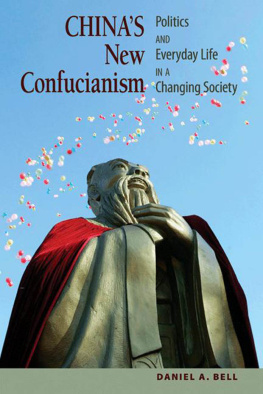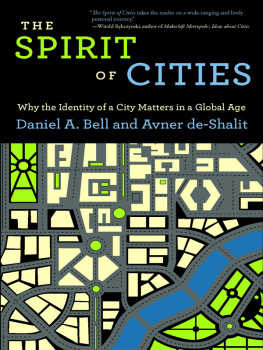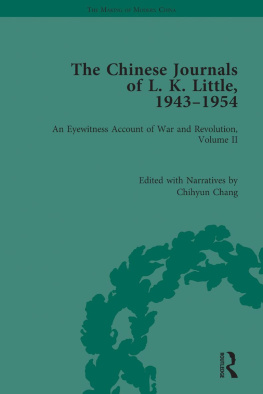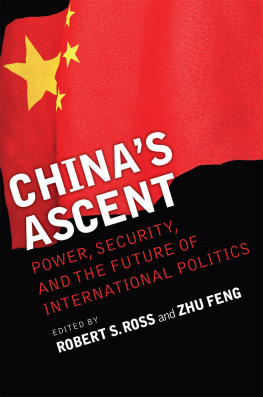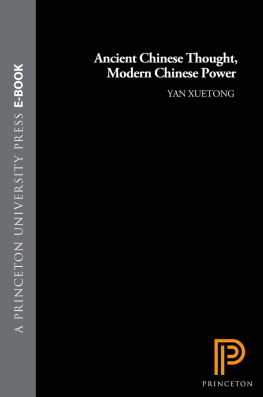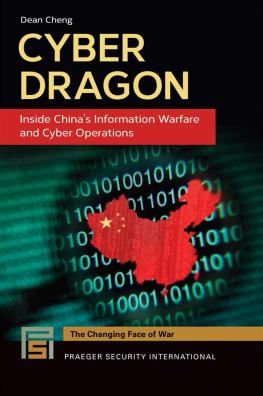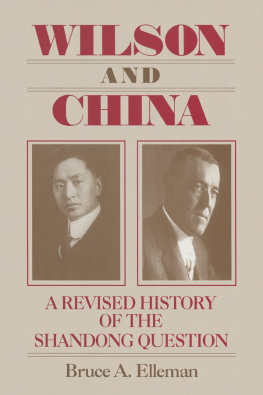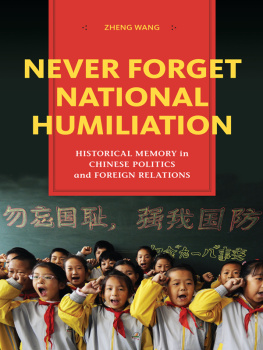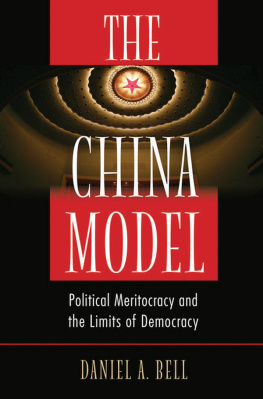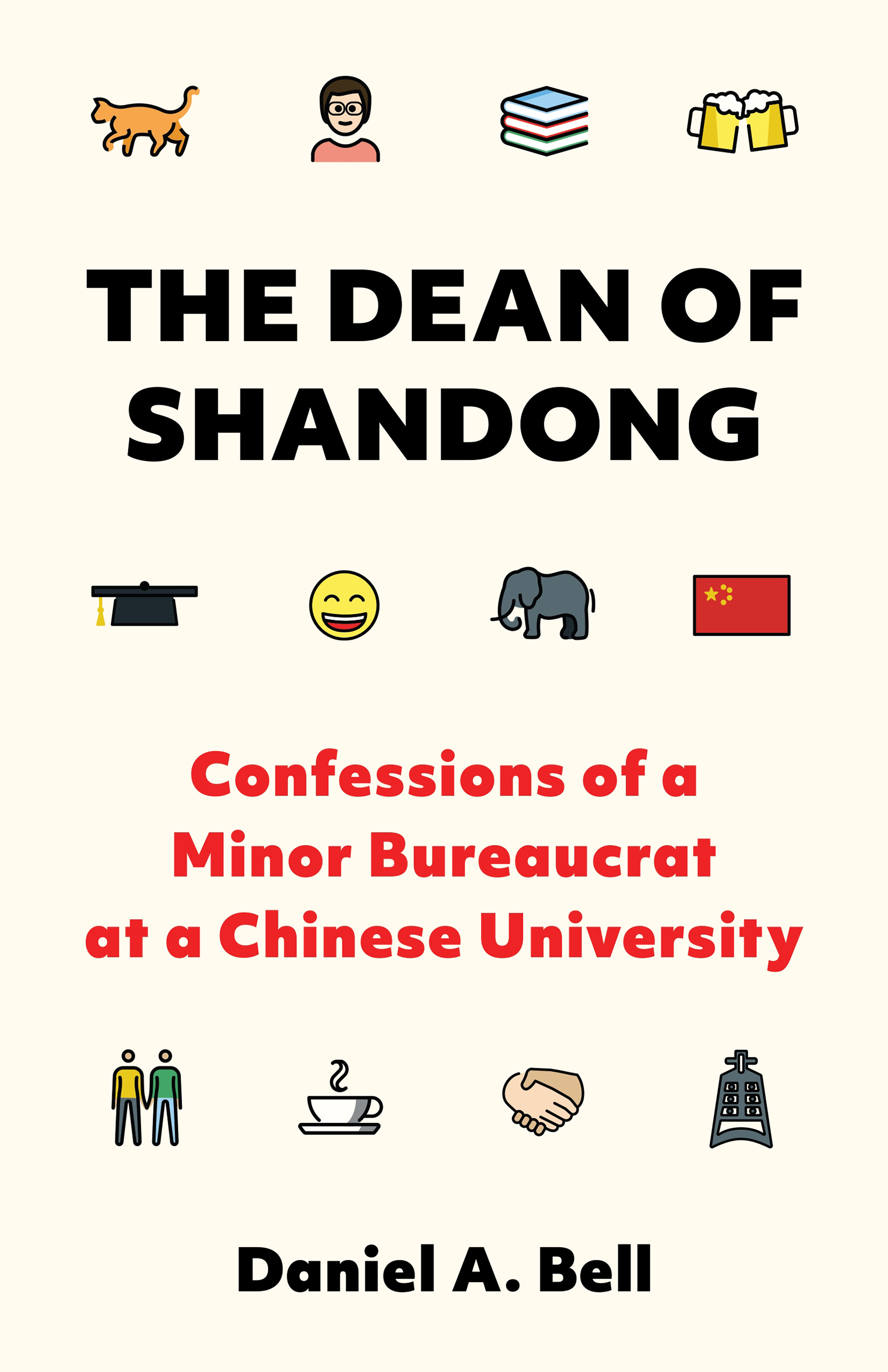THE DEAN OF SHANDONG
I have been a son, a brother, a minister of the emperor, a teacher, a husband, and a father, and I have sons, nephews, and grandchildren. What I have given to my times has been inadequate. Where I have been inadequate is that I have not helped my emperor to unify the empire and bring order to the country. I am truly ashamed to have held all my various offices and ranks without success and wonder how I can repay the gifts of heaven and earth.
FENG TAO, TENTH-CENTURY CHINESE BUREAUCRAT
____________
. Quoted in Wang Gungwu, Feng Tao: An Essay on Confucian Loyalty, Confucian Personalities, ed. Arthur F. Wright and Denis Twitchett (Stanford, Calif.: Stanford University Press, 1962), p. 145.
The Dean of Shandong
CONFESSIONS OF A MINOR BUREAUCRAT AT A CHINESE UNIVERSITY
DANIEL A. BELL
PRINCETON UNIVERSITY PRESS
PRINCETON & OXFORD
Copyright 2023 by Princeton University Press
Princeton University Press is committed to the protection of copyright and the intellectual property our authors entrust to us. Copyright promotes the progress and integrity of knowledge. Thank you for supporting free speech and the global exchange of ideas by purchasing an authorized edition of this book. If you wish to reproduce or distribute any part of it in any form, please obtain permission.
Requests for permission to reproduce material from this work should be sent to
Published by Princeton University Press
41 William Street, Princeton, New Jersey 08540
99 Banbury Road, Oxford OX2 6JX
press.princeton.edu
All Rights Reserved
ISBN: 978-0-691-24712-0
ISBN: (e-book): 978-0-691-24713-7
Version 1.0
British Library Cataloging-in-Publication Data is available
Editorial: Rob Tempio and Chloe Coy
Production Editorial: Jenny Wolkowicki
Jacket design: Katie Osborne
Production: Erin Suydam
Publicity: Alyssa Sanford and Carmen Jimenez
Copyeditor: Madeleine Adams
Jacket images: Select icons by OpenMoji
For My Unicite
CONTENTS
- ix
- 30
ACKNOWLEDGMENTS
THIS BOOK DRAWS on my experience serving as dean of the School of Political Science and Public Administration at Shandong University from 2017 to 2022. I am most grateful to colleagues and students. I may not have met expectations qua dean, but I hope this book will show my appreciation. Shandong University is a uniquely nourishing environment for learning and friendship.
I am particularly grateful to my wonderful editor Rob Tempio, who pushed me to revise and revise until I hit the right note. I would also like to thank three anonymous referees for long and constructive reports and Shadi Bartsch-Zimmer, James Hankins, and my sister Valrie for encouragement and detailed comments on earlier drafts. I am also grateful to Madeleine Adams for excellent copyediting and to Susan Clarke, Chloe Coy, and Jenny Wolkowicki at Princeton University Press for kind and efficient help with the process of publication. This book went through many drafts and I strongly urge those who saw earlier drafts to put them in the dustbin.
I dedicate this book to my wife, Pei. I was separated from family and friends outside mainland China for nearly three years, which was difficult. But Pei and I spent nearly every second together, which not only provided intellectual and emotional nourishment but also helped with my work as dean. I take full responsibility for the many things that went wrong, but to the extent that things went right, much of the credit should go to Peis informal advice. I would also like to thank our two cats, Zhezhe and Lele (), who bring so much joy to our lives, notwithstanding the fact that both Pei and I are allergic to cats.
INTRODUCTION
Confessions of a Minor Bureaucrat in Shandong Province
I AM NOT NOW nor at any time have ever been a member of the Chinese Communist Party (CCP). Yet I serve as dean of a large faculty of political science in a Chinese university that trains students and provincial cadres to serve the country as Communist Party officials: Its typically a post reserved for members of the CCP, given the political sensitivity of the work. Thats part of the surprise. The other part is that Im a Canadian citizen, born and bred in Montreal, without any Chinese ancestry. On January 1, 2017, I was formally appointed dean of the School of Political Science and Public Administration at Shandong University. I was the first foreign dean of a political science faculty in mainland Chinas history and it was big news in China. Shandong University is the premier university in a province of more than one hundred million people, and the School of Political Science and Public Administration has more than eighty teachers and more than one thousand students. I was appointed dean not because of a commitment to Chinas official Marxist ideology but rather because of my scholarly work on Confucianism. Shandong Province is home ground for Confucian cultureboth Confucius and Mencius were born in (what is now) Shandong Province and Xunzi taught at the Jixia Academy in central Shandong, the Chinese equivalent of Platos Academy. Our party secretary, himself a seventy-sixth-generation descendant of Confucius, thought I might be able to help promote Confucianism while internationalizing our faculty and upgrading our academic output.
My appointment as dean is less surprising if its viewed in the context of the transformation of higher education in Chinas reform period over the past four decades. There has been a strong push to internationalize Chinas universities by means such as integrating an international dimension into teaching and research and promoting use of the English language (especially in the sciences, engineering, and business administration). Universities compete to hire foreign-educated faculty and foreign teachers and they provide funding for research stays for Chinese teachers and study abroad programs for students. They cooperate with foreign partners and the government provides support for the establishment of campuses of foreign universities such as New York University in Shanghai. Leading universities such as Tsinghua University in Beijing try to compete with the best universities in the West and they have steadily moved up international academic rankings. In that context, it made sense to hire as dean at Shandong University a foreign Confucian-oriented scholar, who could both promote internationalization of the university and help bring Chinas own traditions to the rest of the world.
As much as Id like to tell a happy or inspiring story of my time serving as a minor bureaucrat in Shandong Province, its largely a tale of bungles and misunderstandings. But my post as dean has provided a unique vantage point to learn about Chinese academia and Chinas political system. This book is an effort to share what Ive learned over the past five years serving as dean. Its written in a self-mocking and playful voice, but its not a memoir. The aim is to share insights, via my experience, about the inner workings of Chinese academia and to draw implications for Chinas broader political system. The book consists of short, interconnected essays that proceed roughly in chronological order.
First, some background. I need to say something about Confucianism and its revival in China over the past three decades or so. The Confucian tradition has frequently been pronounced dead in China since the early twentieth century, but it has made a dramatic comeback. Then Ill say something about my own background: How did someone from a humble working-class background in Montreal end up as a minor bureaucrat in a relatively conservative Chinese province thats unusually resistant to change? I also need to explain the form of the book. It draws on my personal experience for the purpose of shedding light on Chinese academia and the political system, but why the frequent confessions of things gone wrong? The reader may also wonder: What is my political agenda? I need to come clean. Ill end this introduction with a brief summary of the book.


